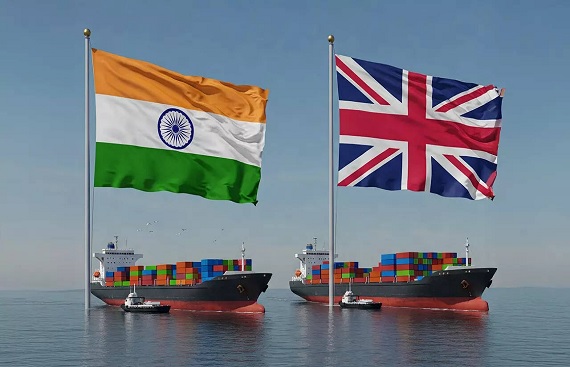India-UK FTA: India to Lower Tariffs on Whisky, Cars, Cosmetics

The finalization of the India-UK free trade agreement will result in considerable benefits for both nations with the bilateral trade reaching more than $100 billion by 2030. In the short term, it translates into reduced duties by India on various products from the UK such as whisky, automobiles, cosmetics and medical equipment, huge export prospects for Indian products, increased visas for Indian skilled workers as well as a three-year social security contribution exemption for Indian professionals temporarily employed in the UK.
Negotiations for the FTA began in January 2022 and have finally been concluded in the middle of the trade and tariff war initiated by US President Donald Trump. Prime Minister Narendra Modi and UK Prime Minister Keir Starmer on Tuesday declared the successful completion of a mutually advantageous India – UK Free Trade Agreement (FTA).
According to the fine print, 99% of Indian exports are going to be under zero duty. As reported in an official statement, the FTA "opens up massive export opportunities for labour-intensive sectors such as textiles, marine products, leather, footwear, sports goods and toys, gems and jewellery, and other important sectors such as engineering goods, auto parts and engines, and organic chemicals.
According to a statement from the UK Department of Business and Trade, Indian tariffs will be reduced, with 90% of tariff lines locked in reductions, and 85% of these becoming completely tariff-free over ten years. Tariffs on whisky and gin will be reduced from 150% to 75% before falling to 40% by year ten of the agreement, while car tariffs will fall from more than 100% to 10% under quota, it added.
Other products with lower tariffs, which can open up markets and reduce the cost of trade for businesses and Indian consumers, are cosmetics, aerospace, lamb, medical devices, salmon, electrical machinery, soft drinks, chocolate and biscuits.
British consumers may enjoy lower prices and greater choice on items such as clothing, footwear, and food items like frozen prawns as UK liberalises tariffs.
India's commerce minister Piyush Goyal met UK Business and Trade Secretary Jonathan Reynolds in London last week following the relaunch of the talks earlier this year. The FTA comes in the context of increasing economic ties between India and the UK as reflected in the bilateral trade of around $ 60 billion which is expected to double by 2030.
